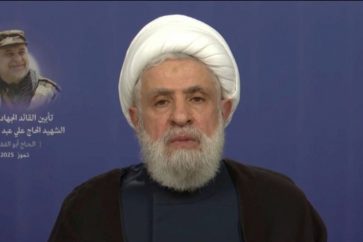Director General of Lebanon’s General Security, Major General Abbas Ibrahim announced that the million-ton Iraqi fuel agreement has been reached, and will be signed within two days, noting that “the agreed quantity will be delivered in two weeks, with the procedure being currently underway between the central banks in Iraq and Lebanon.”
In further details, informed sources confirmed that the deal will be signed in the coming days after the final format has been agreed on. Meanwhile, only logistics remain unfinished, like the Iraqi side setting a date for Lebanese Energy Minister Raymond Ghajar to visit the Iraqi capital and sign the deal on behalf of the Lebanese government. The source also stated that the concerned governmental departments were busy preparing the legal procedure, in which an exceptional resolution should be issued and signed by the President and the Prime Minister to mandate minister Ghajar for signing the contract.
The same sources added, as cited by al-Akhbar Newspaper, that “while the technical part of the contract has been finished, which provides that Lebanon receives one million ton of black fuel, both countries’ central banks made financial negotiations, and decided eventually that the Central Bank of Lebanon opens an unconfirmed credit [not accepted by the correspondent banking] in the name of the Iraqi Bank.”
Payments were delayed for one year after the date of accepting the bills of lading, to be only paid upon a mechanism agreed on by the Lebanese side for the purpose of buying goods and services from Lebanon for Iraqi ministries and institutions, and the Central Bank of Lebanon will be notified about the orders of payment based on the related agreements that will be part of the deal, also according to the sources.
Additionally, it was agreed that “the price be identified with respect to the costs set by the Iraqi oil marketing company in the month of loading the shipment.” This is because the company launches every month a bid upon which the prices are set for the same month.
As for refining oil, the sources mentioned that the process won’t be upon an inclusive contract, but will rather apply the currently adopted procedure, which is having spot cargo bidding [for every shipment] to buy fuel, oil, or gas. Meanwhile, the new contracts will include new items that allow payment through exchange, the sources explained.
Instead of opening document credit for the company that wins the bid, the shipments will be exchanged, with the difference to be paid in case it existed, either cash or through exchanging the fuel shipment suitable for the Lebanese market with a bigger shipment of the Iraqi oil.
Source: Agenceis




